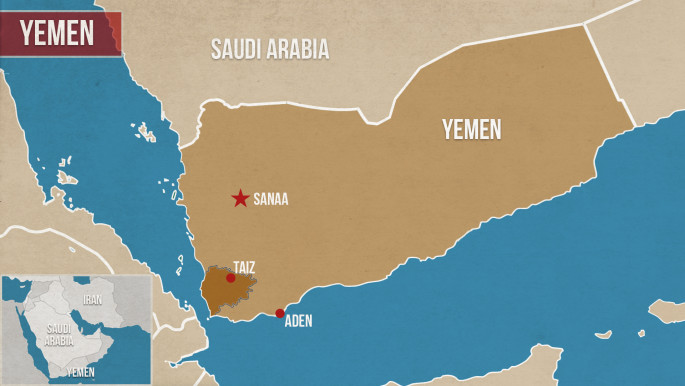Blame game continues as clashes escalate in Yemen
Fighting erupted in Marib, east of the Yemeni capital despite the implementation of a UN-brokered ceasefire a week earlier.
Five pro-government soldiers and eight Houthi rebels were killed in the conflict that continued into Tuesday, sources suggested.
The warring parties battled in other parts of the country including Taiz and Nihim as government officials awaited the arrival of the Houthi delegation at the Kuwait-based peace talks.
Pro-Hadi chief-of-staff General Mohammed Ali al-Maqdishi accused the rebels of "not respecting" the April 11 ceasefire which he said his forces were committed to.
"The truce is still holding based on orders from our political leadership," said Al-Maqdishi.
But the Houthi leadership - which refused to attend the talks in the last minute - continues to blame the Saudi-led coalition of violating the truce as airstrikes continue across the country.
"We affirm our continued commitment to dialogue... and this is why our demand from the first day was for talks to be held in an atmosphere of calm, peace, and stability," Houthi spokesman Mohammed Abdulsalam said in a Facebook statement.
 |
|
"But unfortunately, since April 11, the aggression hadn't stopped and the air strikes have continued on several areas," he added.
Peace talks were due to begin on Monday but were delayed in the last moments when the Houthi delegation failed to show up.
But officials believe the delegation will eventually arrive to begin the peace talks aimed at finding a resolution to more than 13 months of war and instability that has left more than 6,300 people dead and millions more in dire need of humanitarian assistance.
"Representatives from Saleh's party and the Houthis are looking for excuses to delay their arrival at a precise time, but it's expected that they will arrive in Kuwait on Tuesday," an anonymous Yemeni official said.
Saudi Arabia and its Gulf Arab allies joined the war on March 26 of last year to back Yemen's government after it was pushed into exile by the Houthis.
UN talks in June and December failed to end the war.
The war has allowed al-Qaeda fighters to seize territory and opened a path for IS militants to gain a foothold.
Also on Tuesday, a suicide bomber blew himself up before reaching a security checkpoint in main southern city Aden, where militants have carried out deadly attacks against pro-government forces in recent months, a security official said.
There were no casualties apart from the assailant himself, said the official, describing the bomber as "an extremist".





 Follow the Middle East's top stories in English at The New Arab on Google News
Follow the Middle East's top stories in English at The New Arab on Google News
![Israeli forces ordered bombed Gaza's Jabalia, ordering residents to leave [Getty]](/sites/default/files/styles/image_330x185/public/2176418030.jpeg?h=a5f2f23a&itok=_YGZaP1z)

